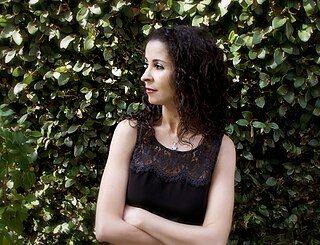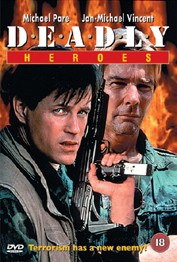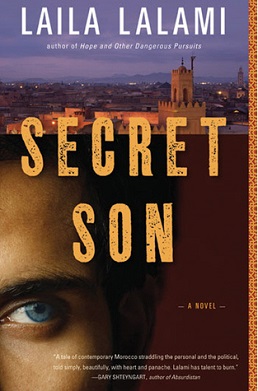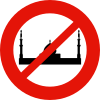Anti-Arab racism includes opposition to, dislike, fear, or hatred of Arab people.
Islamophobia is the irrational fear of, hostility towards, or prejudice against the religion of Islam or Muslims in general. People who harbour such sentiments often stereotype Muslims as a geopolitical threat or a source of terrorism. Academics, authors and policymakers still continue to debate the exact meaning of the term.
The Middle East Media Research Institute (MEMRI), officially the Middle East Media and Research Institute, is an American non-profit press monitoring and analysis organization that was co-founded by Israeli ex-intelligence officer Yigal Carmon and Israeli-American political scientist Meyrav Wurmser in 1997. It publishes and distributes free copies of media reports that have been translated into English—primarily from Arabic and Persian, but also from Urdu, Turkish, Pashto, and Russian.

Sleeper Cell is an American television drama series on the Showtime network that began airing on December 4, 2005. The tagline for the first season was "Friends. Neighbors. Husbands. Terrorists." and the tagline for the second season was "Cities. Suburbs. Airports. Targets." The series was nominated for an Emmy award for Outstanding Miniseries. The eight-episode second season of the series, titled Sleeper Cell: American Terror, premiered on December 10, 2006. Both seasons of Sleeper Cell were originally aired in an unusual fashion, by filming the entire season ahead of time and then airing the episodes on consecutive nights, such that each brand new season was aired for the first time over a period of less than two weeks. In Australia, both seasons originally aired on the Showtime Australia channel in 2006/2007. Re-runs as of 2008 have screened on the showcase channel.

Saladin the Victorious, also known as Saladin and the Great Crusades, is a 1963 Egyptian epic film directed by Youssef Chahine. It is co-written by Chahine, Yusuf Sibai and others, based on a novel by Naguib Mahfouz. The film features an ensemble cast. It stars Ahmed Mazhar, Salah Zulfikar, Nadia Lutfi, Omar El-Hariri, Mahmoud El-Meliguy, Leila Fawzi, Hamdi Gheiss, Ahmed Luxor, Hussein Riad, Laila Taher and Zaki Toleimat.
Anti-Iranian sentiment or Iranophobia, also called anti-Persian sentiment or Persophobia, refers to feelings and expressions of hostility, hatred, discrimination, or prejudice towards Iranian people on the basis of an irrational disdain for their national and cultural affiliation. The opposite phenomenon, in which one holds notable feelings of love or interest towards Iranian people for the same reasons, is known as Iranophilia or Persophilia.

Laila Lalami is a Moroccan-American novelist, essayist, and professor. After earning her licence ès lettres degree in Morocco, she received a fellowship to study in the United Kingdom (UK), where she earned an MA in linguistics.
Reel Bad Arabs: How Hollywood Vilifies a People is a documentary film directed by Sut Jhally and produced by Media Education Foundation in 2006. This film is an extension of the book of the same name by Jack Shaheen, which also analyzes how Hollywood corrupts or manipulates the image of Arabs. The documentary analyzes 1000 films that have Arab and Muslim characters, produced between 1896 and 2000, out of which great majority, 936 titles, were negative in their portrayal, arguing that the slander of Arabs in American filmmaking has existed since the early days of the silent cinema and is present in the biggest Hollywood blockbusters today. Jack Shaheen analyzes a long series of "demeaning" images of Arabs through his presentation of various scenes from different American movies which he has studied. He argues that this image is characterized by showing Arabs either as bandits or as a savage, nomadic race, or shows Arab women as shallow belly dancers serving evil, naïve, and greedy Arab sheiks. Most important is the image of the rifle in the hands of Arab "terrorists". The film then attempts to explain the motivations behind these stereotypes about Arabs, and their development at key points in American history, as well as why it is so important today.
Jack George Shaheen Jr. was an American writer and lecturer specializing in addressing racial and ethnic stereotypes. He authored Reel Bad Arabs, The TV Arab (1984) and Arab and Muslim Stereotyping in American Popular Culture (1997).

Deadly Heroes is a 1993 Israeli–Canadian action film directed by Menahem Golan, starring Michael Paré, Jan-Michael Vincent and Billy Drago. Paré stars as a former Navy SEAL trying to rescue his wife from a terrorist group who fled with her to North Africa after he attempted to thwart their attack on a Greek airport. Available date listings suggest that Deadly Heroes was the last 21st Century Film Corporation production released during the company's existence, although Crime and Punishment was belatedly released in 2002 by another entity.
There are stereotypes of various groups of people which live within the United States and contribute to its culture. Worldwide, a disproportionately high number of people know about these stereotypes, due to the transmission of American culture and values via the exportation of American-made films and television shows.
Racism in early American film is the negative depiction of racial groups, racial stereotypes, and racist ideals in classical Hollywood cinema from the 1910s to the 1960s.

American Muslims often face Islamophobia and racialization due to stereotypes and generalizations ascribed to them. Due to this, Islamophobia is both a product of and a contributor to the United States' racial ideology, which is founded on socially constructed categories of profiled features, or how people seem.

Mazin Butros Qumsiyeh is a Palestinian scientist and author, founder and director of the Palestine Museum of Natural History (PMNH) and the Palestine Institute for Biodiversity and Sustainability (PIBS) at Bethlehem University where he teaches. After serving on the faculties of the University of Tennessee (1989–1993), Duke University (1993–1999), and Yale University (1999–2005), he now researches and teaches at Bethlehem and Birzeit Universities since 2008. Here Qumsiyeh joined with other professors to introduce the first Biotechnology Masters program in the region. Over the course of his career he has published well over 150 scientific papers on topics ranging from cultural heritage to biodiversity in addition to several books. He also serves on the board of a number of Palestinian youth and service organizations such as Al-Rowwad Children Theater and Siraj Center.
Islamophobia in Australia is highly speculative and affective distrust and hostility towards Muslims, Islam, and those perceived as following the religion. This social aversion and bias is often facilitated and perpetuated in the media through the stereotyping of Muslims as violent and uncivilised. Various Australian politicians and political commentators have capitalised on these negative stereotypes and this has contributed to the marginalisation, discrimination and exclusion of the Muslim community.
Islamophobia in the media refers to negative coverage of Islam-related topics, Muslims, or Arabs by media outlets in a way that is hostile, untrue, and/or misleading. Islamophobia is defined as "Intense dislike or fear of Islam, especially as a political force; hostility or prejudice towards Muslims", and the study of how and to what extent the media furthers Islamophobia has been the subject of much academic and political discussion.

Secret Son is the 2009 novel by Moroccan-American writer Laila Lalami. The novel is a bildungsroman that follows its main character, a Muslim youth named Youssef El Mekki, as he comes of age in the Casablanca slums.
Islamophobia in Sweden refers to the set of discourses, behaviours and structures which express feelings of anxiety, fear, hostility and rejection towards Islam and/or Muslims in Sweden. Historically, attitudes towards Muslims in Sweden have been mixed with relations being largely negative in the early 16th century, improving in the 18th century, and declining once again with the rise of Swedish nationalism in the early 20th century. According to Jonas Otterbeck, a Swedish historian of religion, attitudes towards Islam and Muslims today have improved but "the level of prejudice was and is still high." Islamophobia can manifest itself through discrimination in the workforce, prejudiced coverage in the media, and violence against Muslims. The anti-immigration and anti-Islam Sweden Democrats is the second largest party in the Riksdag.
Arabs are portrayed in film as film characters in both Arab films as well as non-Arab films, and both Arabs and non-Arabs take the role of an Arab. These portrayals often depict an ethnocentric perception of Arabs rather than an authentic and realistic depiction of Arabic cultures, religions, dialects, as well as customs and traditions. Common characteristics that are implemented in the role of Arab characters include speaking in a heavy accent, being hostile and vicious, and are in the context of terrorism. Key issues that have been explored in these portrayals include how Arabs are identified in mainstream Hollywood film, how Arabs self-represent themselves in their own film, with examples from Egyptian cinema, Palestinian cinema, as well as Syrian cinema. This article will also cover the emphasis on Islamophobia and its impacts on film. There has also been the portrayal of Arab women in film, the portrayal of Arabs post 9/11, the portrayal of Arabs in silent film, and positive portrayals and negative portrayals of Arabs. Lastly, the United States efforts to avoid the stereotyping of Muslims/Arabs and shifting the focus onto a positive outlook.







